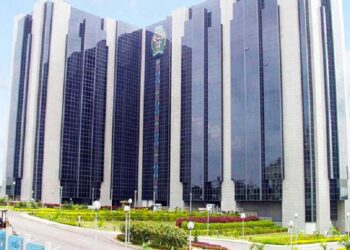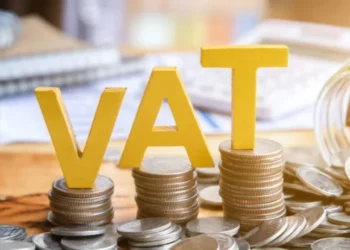As part of measures to assuage the impending economic crisis resulting from crude oil price crash, the Central Bank of Nigeria (CBN) yesterday highlighted policies it would adopt to assuage the effects of the crisis. It also expressed willingness to align its monetary policies with the fiscal side, a major criticism of its operations.
The governor of the Central Bank of Nigeria, Mr. Godwin Emefiele, said yesterday that the CBN, “working with the fiscal authorities, will not hesitate to deploy additional measures to strengthen buffers and insulate the Nigerian economy from the global headwinds”. Emefiele was speaking at the CBN one day round table themed “Going for Growth 2.0”.
He however, acceded that despite our current measures aimed at supporting growth, Nigeria’s economy faces considerable challenges.
Emefiele said: “Given this challenge, it is imperative that this roundtable session comes up with well-structured funding models, that will mobilise funds from banks and other financial institutions to fund critical infrastructure projects, while providing attractive returns to investors.
“We must also use this opportunity to consider funding for infrastructure projects that improve access to markets for farmers and SMEs, while also connecting the railways to our ports, in order to increase our non-oil exports. Such schemes will support greater economic growth and help free up funds for the government to focus on other priority objectives. Indeed, the current oil price shock validates some of the measures taken by the fiscal and monetary authorities on diversification of the Nigerian economy. These measures, which have focused on improving domestic production of goods and services, particularly in the agriculture and manufacturing sectors, are necessary if we are to insulate our economy from volatilities in the crude oil market. We must build on the successes of these measures and reduce our dependence on excessive imports. Credit must go to President Muhammadu Buhari who has placed considerable emphasis on diversifying our economy away from its reliance on earnings from crude oil.
According to him, “in the last three years, the Nigerian economy has remained on a positive growth path. GDP growth has remained in positive territory for the 11th consecutive quarter, following the 2016 – 2017 economic recession. In the 4th quarter of 2019, GDP growth stood at 2.55 percent, which is the highest rate of quarterly growth attained since 2016, surpassing the expectation of several analysts, that had predicted a 2.2 percent growth. For the year 2019, GDP growth stood at 2.27 percent relative to negative 1.6 percent in 2016, highlighting the impact of fiscal and monetary policy measures that have helped support growth in critical sectors of the Nigerian economy such as Agriculture, Industry, Oil and Gas, and ICT. One of the critical measures that helped to boost growth in 2019, was the impact of the Central Bank’s new minimum loan to deposit ratio, which was initially at 60 percent, and subsequently raised to 65 percent.
“We also imposed restriction on access to OMO auctions in order to encourage banks to lend to the real sector. Indeed, the Banking sector has responded positively with the rise in aggregate industry credit from N15.3 trillion, May 2019 to over N17.4 trillion in January 2020. I am aware that these loans have been granted to borrowers across different sectors at considerably lower rates. Although a lot more still needs to be done; We intend to sustain these policy measures, as it will help support improved economic growth and create more employment opportunities. The impact of the coronavirus across over 100 countries, has affected global supply chains, as well as demand for goods and services. Commodity prices have also been affected, as crude oil prices have plummeted by over 45 percent since January 2020.
He further said “I believe we can envision a vibrant economy in Nigeria that is less dependent on crude oil. Once upon a time in the sixties, our cities and rural communities were brimming with activities, as industries sprung up in Lagos, Kano, Kaduna, Onitsha and Aba, to mention a few. Rural dwellers supported increased cultivation and exports of cash crops such as cocoa, palm oil, and cotton. These activities enabled the creation of jobs for rural and urban dwellers while working to stem rural-urban migration. Our reliance on crude oil revenues beginning in the ’70s was the advent of our problems in Nigeria. Oil rose from 3 percent of our total exports’ earnings in 1960 to over 90 percent by 1976. Today, oil constitutes close to 80 percent of our export earnings. Our dependence on oil exports contributed to the decline of our local industries as well as our agricultural sector, as it enabled an excessive reliance on the imports of goods and services”.
According to Emefiele “this reliance on imports contributed significantly to the challenges we now face in our agricultural and manufacturing sectors, but more importantly, it resulted in the loss of job opportunities for Nigerians. Our craze for imports of everything and anything supported factories, farms and the creation of jobs in other nations, while turning our industries into warehouses for these imported goods. Today, the current leadership under President Muhammadu Buhari is working to deal with high unemployment levels, as well as the smuggling and dumping of goods in Nigeria, by putting in place policies that support increased production of goods in Nigeria. Ladies and gentlemen, If we do not deal with these issues, the challenges of kidnapping and banditry would only fester, as those involved in these nefarious activities would only resort to these activities with intensity in the absence of job opportunities.
In a related development, Mr Mele Kyari, Group Managing Director (GMD) of the Nigerian National Petroleum Corporation (NNPC) has urged Nigerians to prepare for more tough time in few months following the crash in the prices of crude oil due to outbreak of coronavirus.
He explained that about 12 Liquefied Petroleum Gas (LPG) cargos got stranded globally because they had no hub due to abrupt collapse in demand associated specifically with coronavirus.
“It has also hit other sectors from the production stage which is the liquid crude.
“As at today with the Nigerian crude, we have 50 cargoes that have not found landing; it means the traders have purchased it but they don’t know how to take it.”
“Iraq dropped its price by five dollars and Saudi Arabia by eight dollars in some locations.
“So, when your crude oil sells at 30 dollars and you’re dropping it by eight dollars, it means that in the market, you’re selling it at 22 dollars.
“This is a huge problem that can be accommodated in some production environment like in Saudi Arabia.
“Today, the best of our production system is 15 dollars to 17 dollars a barrel, there are many countries whose cost of production is 30 dollars and we’re one of them.
“So, when the price now goes to 22 dollars and we’re producing at 30 dollars, that means we’re out of business,” he explained.
According to him, with the oil market slump on Monday, the reality on ground is beginning to dawn on the country.
He said that when the oil market collapsed, everything would collapse completely adding that oil was the only commodity whereby when the price goes up, beneficiaries would panic.
“Coronavirus has brought several issues especially in the financial sector as there is decline in consumption.
“As it stands, there is a global demand of 100 million barrels per day and the spread is affecting the demand.
“We can take oil production to three million barrels if we are determined, but the problem still remains that we have a huge challenge which is the capacity to finance oil development in Nigeria,” he said.


